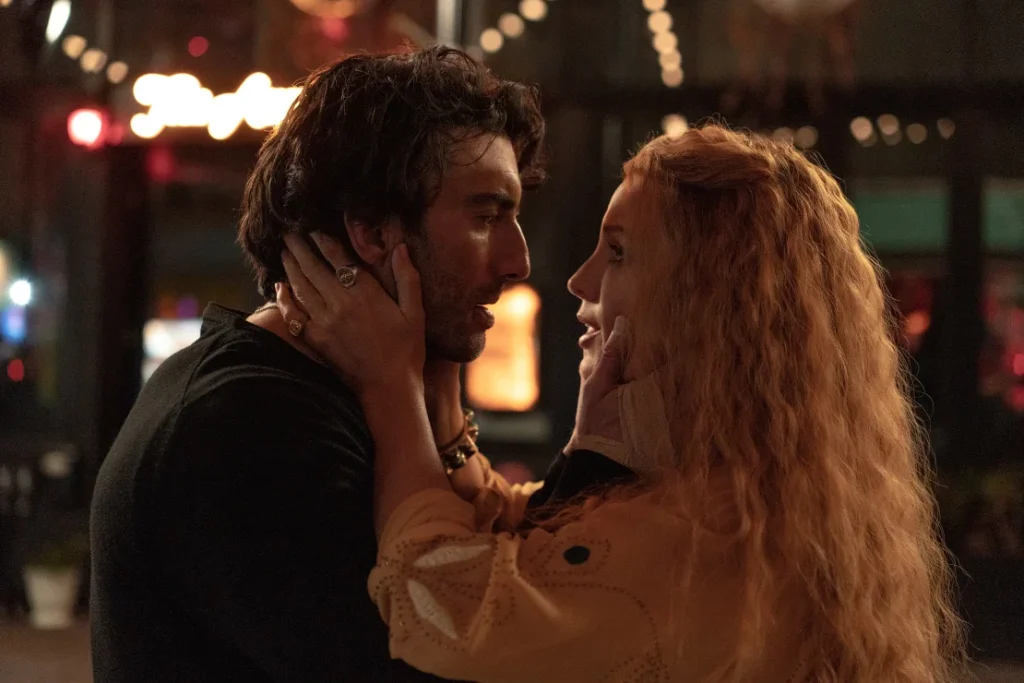Following his co-star Blake Lively’s sexual harassment accusation against him, American actor Justin Baldoni is retaliating by suing The New York Times on Tuesday for libel, alleging that the publication of an article that was “rife with inaccuracies, misrepresentations, and omissions” and that it relied on Lively’s “self-serving narrative.”
In December, Lively complained of sexual harassment and retaliation against Baldoni to the California Civil Rights Department. After Lively voiced concerns about sexual harassment on the set of their movie “It Ends With Us,” Baldoni and his crew allegedly retaliated against her by leaking negative news in an attempt to damage her career.
The New York Times originally reported Lively’s complaint in an article headlined “‘We Can Bury Anyone’: Inside a Hollywood Smear Machine,” which was published on December 21. Civil Rights Department complaint contents, which are normally confidential, were included in the 4,000-word story.
Baldoni was fired by WME, the talent agency that also represents Lively and her husband, Ryan Reynolds, following the New York Times piece and Lively’s complaint against him. The Hollywood actors’ organisation, SAG-AFTRA, quickly endorsed Lively by stating in her favour. The studio that created “It Ends With Us,” Sony, also issued a statement endorsing Lively.
Lively allegedly made up sexual harassment claims to gain control of the movie, according to Baldoni, who then launched an effort to “reshape her public persona” by making “salacious, headline-grabbing allegations” in The New York Times at Baldoni’s cost.
According to Baldoni’s lawsuit, “Lively’s disingenuous misuse of sexual harassment claims to establish exclusive authority over all production-related matters was both calculated and deceptive.” At the same time, she made many high-profile mistakes that damaged her reputation, which she attempted to hide by accusing Plaintiffs of allowing the public to interfere with an A-list celebrity’s personal affairs. This is merely a justification. Lively’s actions here are unacceptable, but fame has two sides.
The lawsuit alleges that The New York Times “relied almost entirely on Lively’s unverified and self-serving narrative, lifting it nearly verbatim while disregarding an abundance of evidence that contradicted her claims and exposed her true motives,” thereby failing to uphold its “journalistic integrity” in investigating Lively’s claims of sexual harassment and retaliation.
A representative for The New York Times informed CNN that the newspaper intends to “vigorously defend against the lawsuit.”
“An independent news organisation’s job is to follow the facts where they lead,” Times spokesperson Danielle Rhoades Ha told CNN in a statement on Tuesday. “Our story was covered responsibly and with great care.”

Thousands of pages of authentic documents, including the emails and text messages that we accurately and extensively quoted in the piece, served as its foundation. Mr. Baldoni, Wayfarer Studios, the other subjects of the story, and their agents have not yet identified any mistakes. In reaction to the accusations in the story, we also released their whole statement.
“Nothing in this lawsuit changes anything,” Lively’s lawyers told CNN in a statement on Lively’s allegations.
The actress’s lawyers filed a federal case on Tuesday, but Lively first complained to California’s Civil Rights Department about Baldoni and his Wayfarer production business.
Lively’s lawyers stated, “We look forward to addressing every one of Wayfarer’s allegations in court.”
Attorney Bryan Freedman filed Baldoni’s lawsuit in Los Angeles Superior Court on behalf of ten plaintiffs in total: Wayfarer Studios, Baldoni, his producing partner Jamey Heath (who was also accused of sexual harassment by Lively), and Baldoni’s crisis manager and publicist, Melissa Nathan and Jennifer Abel.
“It Ends With Us,” which is based on the book of the same name and revolves around a couple and domestic abuse in their relationship, was co-starred by Lively and directed by Baldoni. The movie, which became a box office hit, was created, and the booking rights were purchased by Wayfarer Studios.
Included in Lively’s case were screen grabs of text messages and emails that Lively’s team claimed demonstrated coordinated efforts by Baldoni’s public relations personnel to damage her reputation in the media as part of a “social manipulation campaign.”
Freedman told CNN that the text messages included in Lively’s original complaint were “doctored and manipulated” and that Baldoni’s lawsuit included pages and pages of such texts. The Times “intentionally” left out passages that “dispute” Lively’s story, he claims in his complaint.


